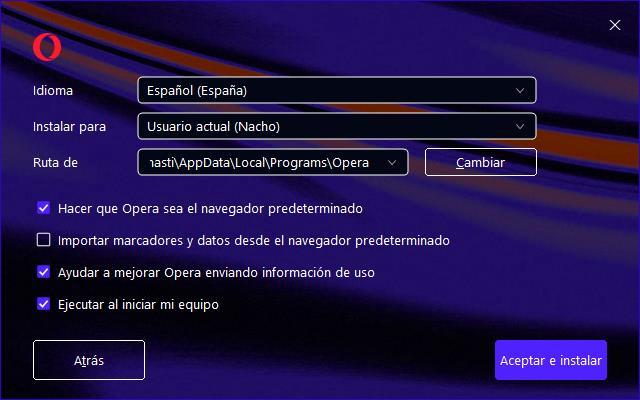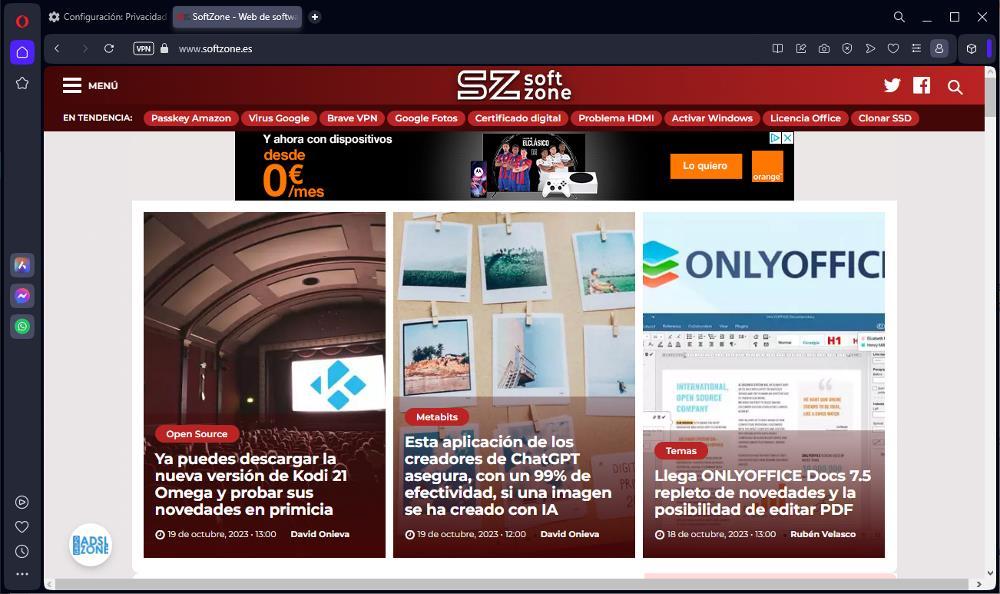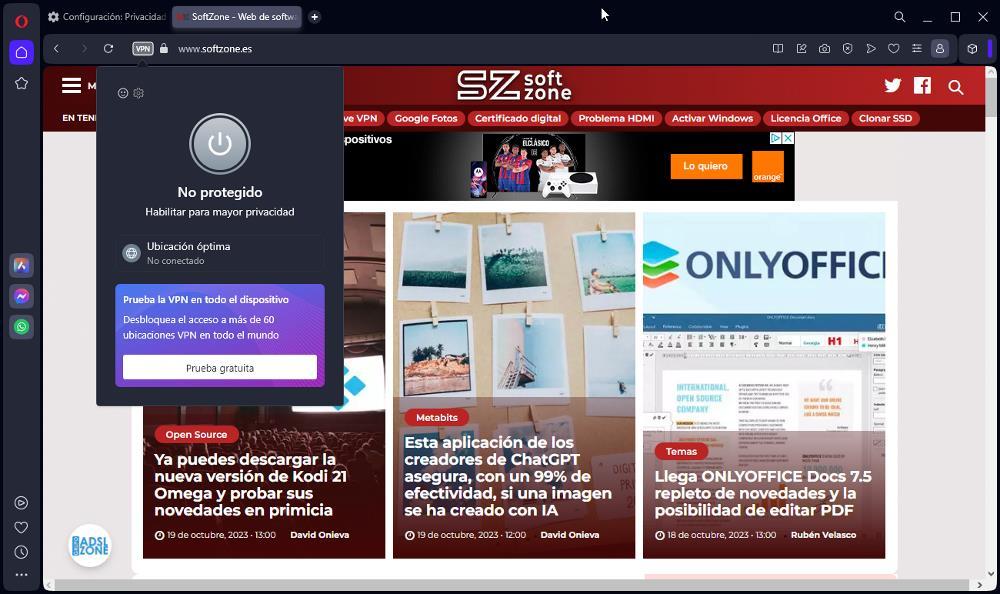Chrome is the most used browser in the world since it is found on almost 3 out of every 4 computers, however, it is not the only one that we can use to browse the Internet since we have a large number of options available such as Edge, Firefox, Brave among others.
Opera is another browser that we can also use to browse the Internet, however, it is not an option that we should consider, especially since its creators abandoned the project since the development of the application made a complete turn in terms of functions and, especially, privacy, one of the aspects that we must take into account the most when choosing a browser.
- Problematic installation. One of the hobbies that many application developers have is to sneak the application into Windows startup so that it runs automatically when the PC starts, increasing the time needed for the PC to be ready to get to work. Without leaving the installation, another reason for not recommending it is that it automatically becomes the default browser, without asking us, unless we delve into the installation options.

- Collects personal data. When a web page wants to access our location, it always asks us for permission, an option that we will not find in Opera since, by default, it is responsible for activating this function by default. If we take into account that user data is an important source of information that allows the company to focus advertising campaigns and sell our data to third parties.
- Overloaded interface. When we browse any web page, the user wants to enjoy the entire screen to be able to view the information correctly, however, due to the application panel that Opera offers us on the left side of the browser, the space available to navigate is more. reduced and distracts our attention, even if we are not using this functionality.

- It belongs to a Chinese consortium. This browser was launched in 1995 but in 2016, it was no longer in Norwegian hands, the country in which it was founded, to become part of a Chinese conglomerate, so a series of doubts are raised about what it is. doing this company with the data it collects using.
- It includes a VPN even if we do not use it. Opera allows users to additionally contract a VPN to browse safely without having to use third-party extensions. In this way, every time we open it, it is consuming a series of resources that are not really useful to us, especially affecting low-resource computers.

- Few privacy options. Chrome, despite being Google’s browser and everything related to this company is not synonymous with privacy, includes many more functions to customize what type of data we allow the websites we visit and which we do not want to record. The same thing happens with Microsoft’s Edge, and, in fact, it includes more options than the Google browser, but if we talk about Opera, the options are conspicuous by their absence.















